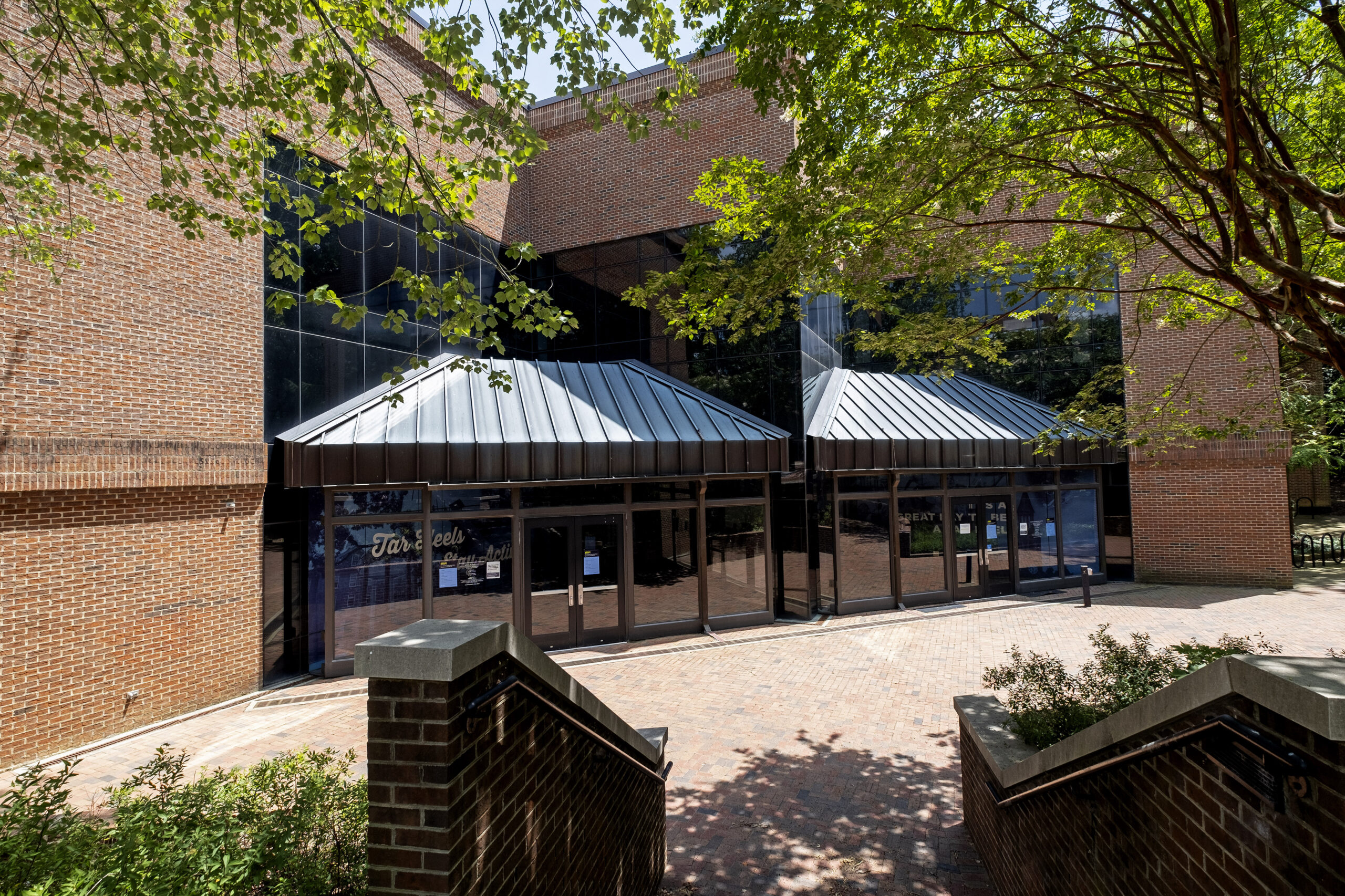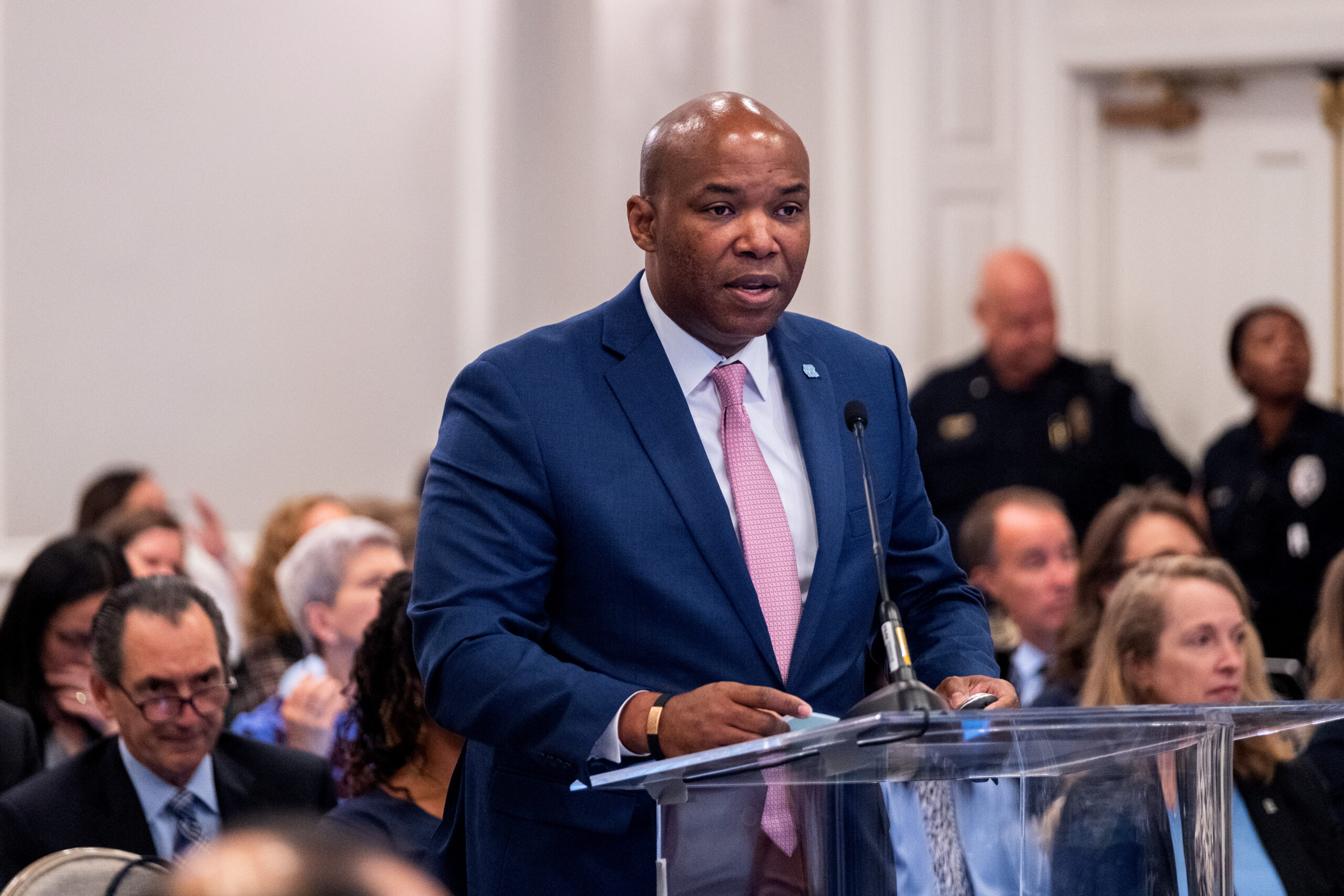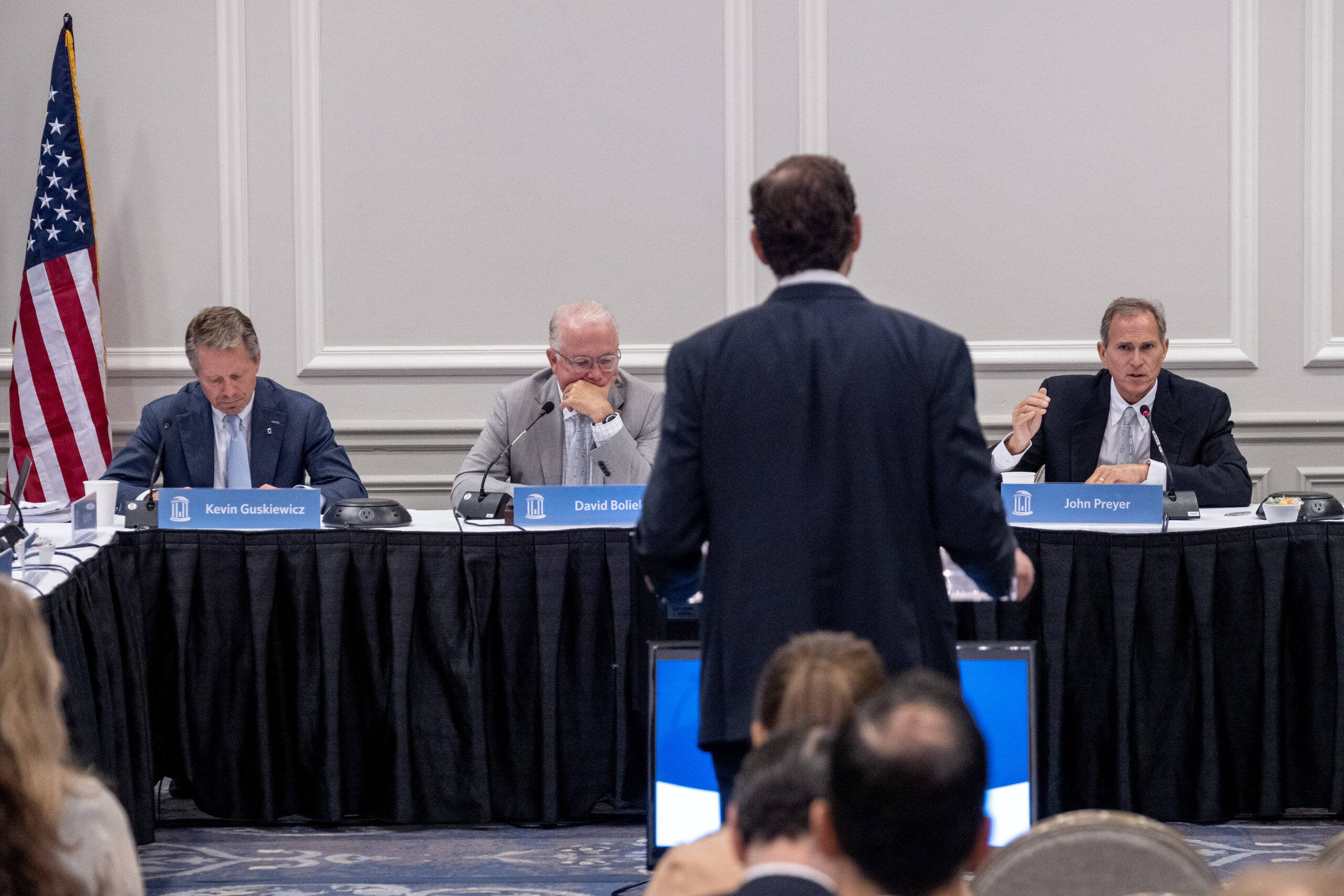CHAPEL HILL – At Thursday’s meeting of the Board of Trustees, UNC student body president Christy Lambden spoke out harshly against recent allegations that a majority of Carolina student-athletes struggle to read at a high-school level.
“I for one am disgusted by the reputation of Carolina students being unnecessarily disparaged by the media,” he said.
Lambden joins a chorus of UNC leaders who have pushed back strongly against academic advisor Mary Willingham’s contention—first publicized on CNN earlier this month—that a large percentage of student-athletes are admitted to Carolina without the ability to succeed in college.
Willingham studied 183 athletes, mostly basketball and football players, who were admitted to UNC between 2004 and 2012; she said she found that 60 percent of them read between a fourth- and eighth-grade level. But last week at a Faculty Council meeting, UNC officials said Willingham had based her findings on a test that wasn’t meant to measure grade level—and that SAT and ACT test scores indicated that 90 percent of incoming football and basketball players in that time frame met the commonly accepted threshold for college literacy.
The resulting debate grew emotional on all sides—Willingham even received death threats—and caught in the middle of it all, Lambden says, were the athletes themselves.
“I have personally taken the time to speak with a number of student-athletes at Carolina, both revenue and non-revenue (sports),” he said Thursday, “and it was clear that all students that I spoke to felt hurt, betrayed, and ultimately persecuted by what they believe to be completely unfair and unmerited accusations about their academic abilities.”
UNC officials generally avoided commenting on the Willingham issue on Thursday, beyond a call for civility from Chancellor Carol Folt. But Lambden remained outspoken at the meeting, saying that he’d never seen a student-athlete who couldn’t succeed in college—and that his fellow students felt the same way.
“I think for the most part, the student population is of the same mindset as I am,” he said. “A lot of students have taken classes with student-athletes and have never found this to be the case of any of the student-athletes that they’ve taken classes with–and I’ve heard that on repeated occasions.”
And while the current debate has revolved around admissions criteria, Lambden says it’s more important to examine how well UNC students succeed once they’re here.
“When we’re looking at an admissions policy from Carolina that says we only admit people that we believe can succeed at Carolina, it seems that the most important metric is, do they succeed at Carolina?” he said Thursday. “And I think for the most part, students and student-athletes that I’ve spoken to absolutely believe that the University is providing everything that they need to be able to succeed at Carolina, and I think that’s reflected by the graduation data that we have.”
In a committee meeting on Wednesday, Provost Jim Dean said UNC had commissioned an external review of Willingham’s data.
A larger study conducted by CNN across multiple colleges found that “most schools have between 7% and 18% of revenue sport athletes who are reading at an elementary-school level.”







Comments on Chapelboro are moderated according to our Community Guidelines